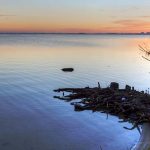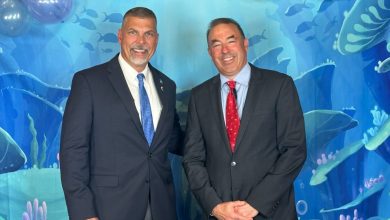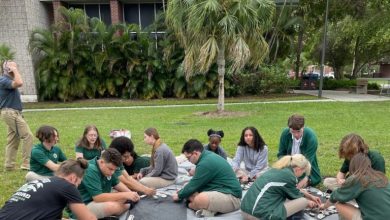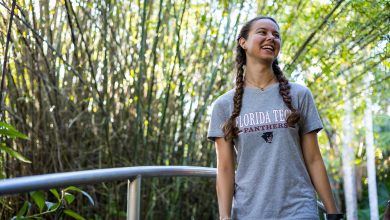Florida Tech Establishes Indian River Lagoon Research Institute
MELBOURNE, FLA.—In response to the pressing issues of the health of the Indian River Lagoon, Florida Institute of Technology Executive Vice President and Chief Operating Officer T. Dwayne McCay announces the establishment of the Indian River Lagoon Research Institute (IRLRI). The new institute is a collaboration of the university’s scientists, engineers, coastal resource managers and educators, working independently and with community organizations to improve and sustain the health of the Indian River Lagoon.
Leading the new institute are Assistant Professor Robert Weaver, Department of Marine and Environmental Systems (DMES), director; Professor Gary Zarillo, DMES, and Associate Professor Jon Shenker, Department of Biological Sciences, co-directors.
The lagoon environment’s decline has elicited alarm. “This has motivated the university’s faculty researchers to unite with a common goal of addressing the present crisis and ensuring the sustainability of proposed solutions,” said McCay.
Initial plans call for developing science-based lagoon-scaping projects to return the lagoon to a clean, prosperous and healthy ecosystem. Research activities at the institute will focus on developing solutions for existing environmental issues, according to McCay. These issues include the chemical and biological impacts of muck sediments and muck removal; internal and external nutrient-loading into the IRL from muck sediment, tributaries, groundwater, septic tanks and fertilizer; the decline of essential habitats for commercially and recreationally important fish and shellfish populations and the restoration of those species. Additionally, scientists will conduct numerical forecasting of circulation and water quality and validate the forecasts for use as a management tool.
Florida Tech has conducted lagoon research for more than 30 years. The new institute has access to state-of-the-art laboratories and field sites for chemical and biological testing and for designing and developing engineering solutions to lagoon problems.
“We recognize the importance of healthy ecosystems to the economic and recreational growth and viability of all coastal regions. The IRLRI will partner with neighboring organizations, local governments and research institutions to reinforce our efforts and increase the coverage of our research,” said McCay.
More than 20 faculty members have agreed to participate in the IRLRI and to bring their students into future projects. The multidisciplinary effort encompasses ocean engineering, oceanography, environmental science, meteorology, civil engineering, science education, marine biology, aquaculture and the Nathan M. Bisk College of Business.







